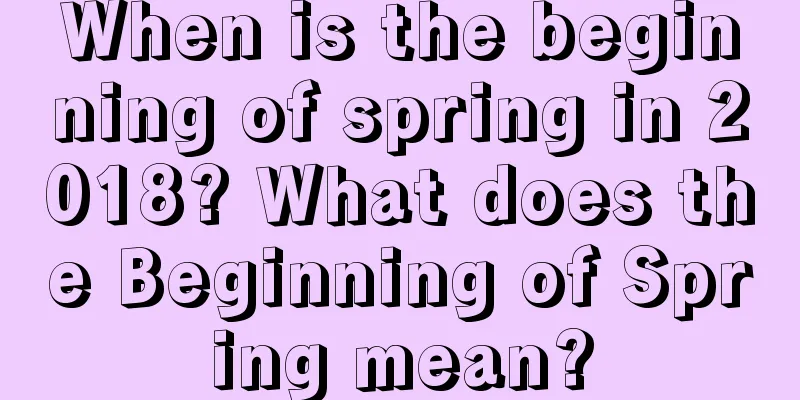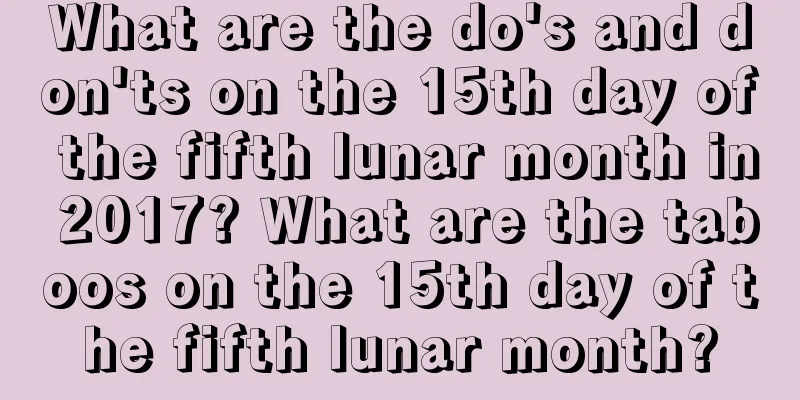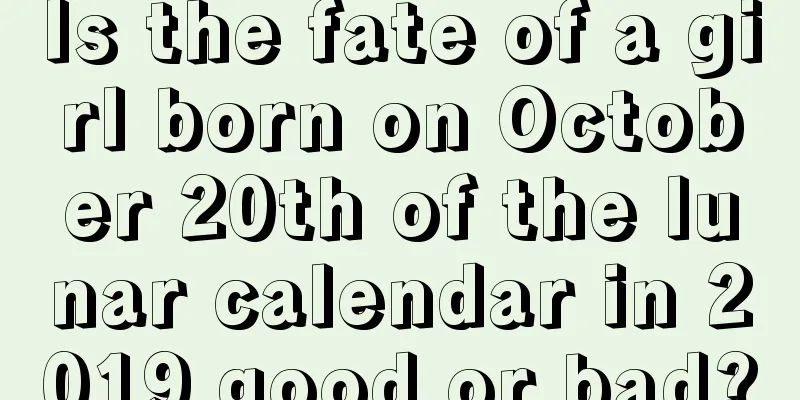Introduction to Japan's Double Ninth Festival, what is different about Japan's Double Ninth Festival

The Double Ninth Festival is now not only popular in China, but has gradually spread to Japan and other places. So, is there anything different about Japan’s Double Ninth Festival? Let’s take a look together. Mr. Shui Mo has carefully compiled detailed information about the ninth month of the lunar calendar in 2018. If you want to know the auspicious and inauspicious days in the ninth month of the lunar calendar, please go to Mr. Shui Mo.Japan Double Ninth FestivalThe Double Ninth Festival in Japan spread from China, and its meaning is the same as ours, because the "Book of Changes" defines 6 as a yin number and 9 as a yang number. On September 9th, the sun and the moon are both yang, and two nines are repeated, so it is called Double Ninth Festival. In Japanese, it is called "Chongyang (ちょうよう)", so this day is a day worth celebrating. This festival was introduced to Japan during the Heian period, and a chrysanthemum-viewing banquet was held in the palace on September 9th every year.Customs of Japan's Double Ninth FestivalSeptember 9th is also a very important day for people who love flower arrangement. During some specific festivals in Japan, people will choose a flower that represents that season for flower arrangement. On this day, people will only use chrysanthemums for flower arrangement, which in a sense can also be regarded as a special ritual. On the Double Ninth Festival , the Kamigamo Shrine in Kyoto holds the "Double Ninth Festival" to pray for good health and no disasters. In addition, the more famous sacrificial ceremonies on the Double Ninth Festival include the "Chrysanthemum Quilt" at Omiya Hachimangu Shrine and the "Double Ninth Festival" at Ichihime Shrine.What is the nickname of Japan's Double Ninth Festival?Chrysanthemum Festival & Chestnut Festival This day on the lunar calendar is also called the Chrysanthemum Festival because it is the season when chrysanthemums are in full bloom. In ancient China, chrysanthemum was also called "Weng grass" and "Qiandaijian grass", and was believed to have the effect of expelling evil spirits and blessing longevity. Influenced by China, Japan has the custom of placing cotton cloth on chrysanthemums on the night of the 8th, and then using it to wipe the body after it is wet by dew on the 9th, in order to pray for longevity. At the same time, because it is the harvest season, people also call this day the "Chestnut Festival" and eat chestnut rice to celebrate. |
>>: What is the date of the seventh day of the ninth lunar month in 2018? Is it an auspicious day?
Recommend
Analysis of the fate of boys born on the 29th day of the twelfth lunar month in 2021
The 29th day of the twelfth lunar month in 2021 is...
What can we do during the Autumnal Equinox 2021? Is the autumnal equinox the beginning of autumn?
When the autumnal equinox arrives, the water begin...
Is it okay to get married on the fifth day of the sixth lunar month in 2017? Is it suitable for getting engaged and getting a marriage certificate?
1. What day is the fifth day of the sixth lunar m...
What is the best gift for your girlfriend on Labor Day in 2020? What do women like?
Many boyfriends will choose to give gifts to their...
Can I move into my new home on the Dragon Boat Festival on the fifth day of the fifth lunar month in 2018?
During the Dragon Boat Festival, many young people...
Where is the God of Happiness on the 11th day of the first lunar month in 2018?
1. What day is the eleventh day of the first luna...
What is the zodiac sign of a baby born in the beginning of spring in 2022 and what is his personality like?
After the beginning of spring, the wind is gentle ...
What constellation is the eighth day of the second lunar month in 2022? Is this a good day?
The second month of the lunar calendar is also kno...
Lunar calendar for April 11, 2019, is it a good day?
Shuimoxiansheng.com has carefully compiled detail...
What are the customs and traditions of Xiaoman? When is the day of Xiaoman in 2019?
Grain Full is one of the 24 solar terms. The arriv...
What date is the 18th day of the twelfth lunar month in 2019?
The twelfth month of the lunar calendar is commonl...
Are people born on New Year’s Day in the Year of the Tiger lucky? Are they blessed?
The arrival of New Year’s Day means we have entere...
Is the ninth day of the twelfth lunar month in 2019 an auspicious day for signing a contract?
Is the ninth day of the twelfth lunar month in 201...
Is a child born on the sixth day of the fifth lunar month in 2021 a Gemini?
A lot of people are born every day, so let’s take ...
Is it auspicious to set up the bed on the 29th day of the twelfth lunar month in 2019?
Introduction: Sometimes you have to choose an ausp...









